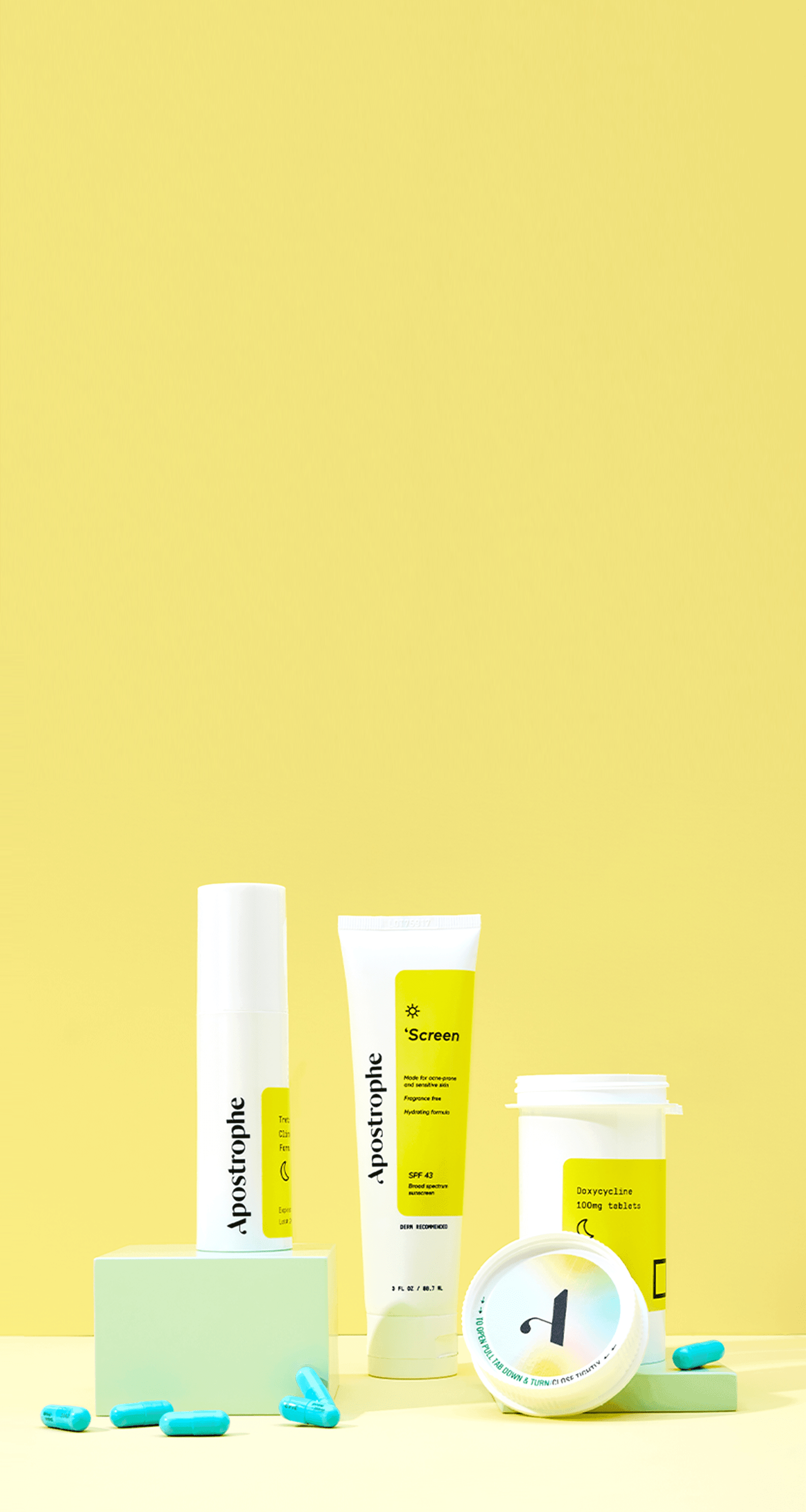

Get prescription acne treatment online.
Sometimes over-the-counter products don't cut it. Effectively treat your acne with prescription-strength treatments.
Customized treatments
From an expert derm team
Free shipping, always
A derm visit is just $20.
Our patients
Real patients. Real results.
5.00 0 reviews
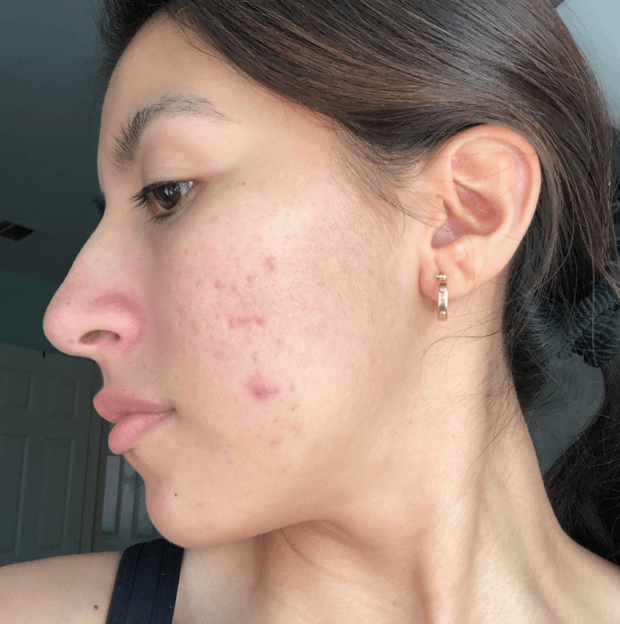
now

during
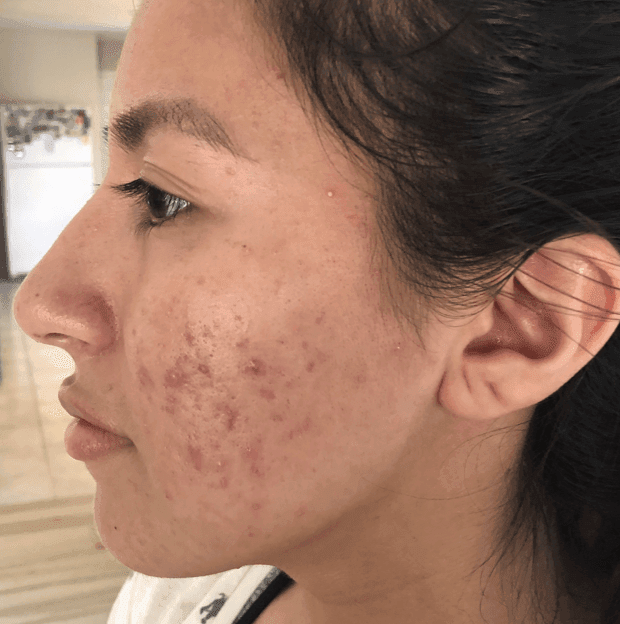
before
“Before Apostrophe, my skin was at the worst it’s ever been. After a month of treatments, my skin had dramatically changed! I have been using Apostrophe for 2 years and it was the best decision I have ever made. If anyone is thinking about using Apostrophe I definitely recommend it!”
Betzabeth
concern
acne
melasma
rx treatment
Tretinoin Formula
Spironolactone
Maggie Kober
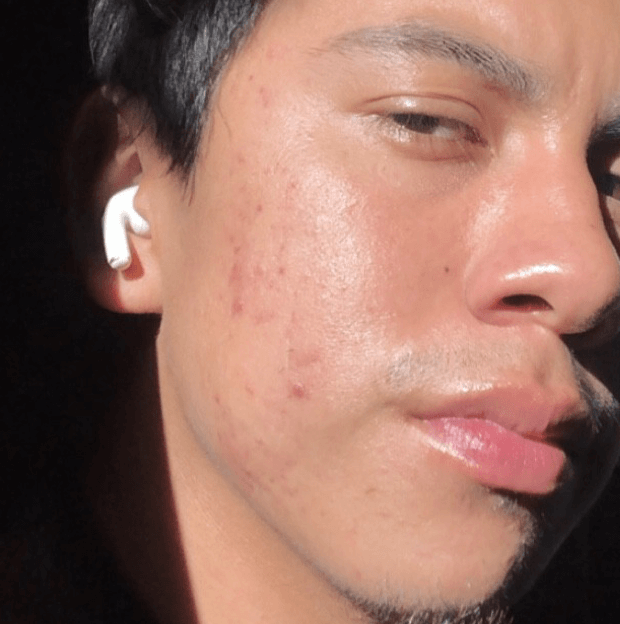
now

during
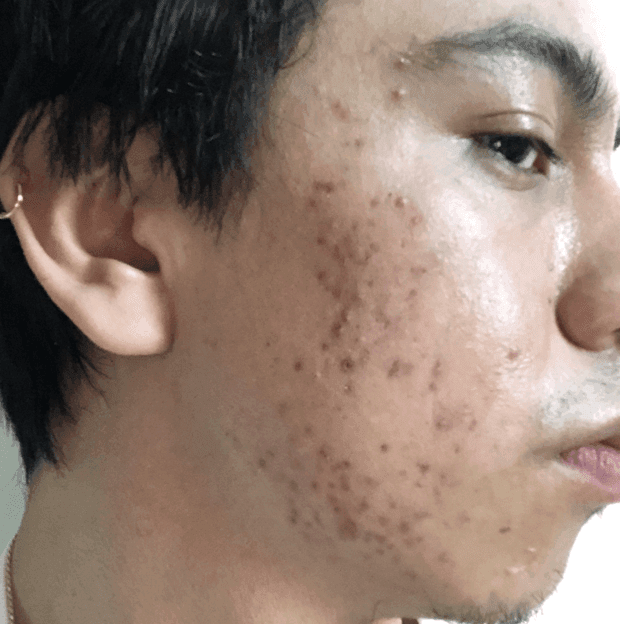
before
“I’ve been struggling with my acne for about five years. Being quarantined brought along stress that took a toll on my skin. Not having access to an in-person dermatologist, I found Apostrophe! I am reaching a content state with my skin again and that has played a huge role in my skin journey!”
Andy
concern
breakouts
rx treatment
Tretinoin Formula
Doxycycline
Maggie Kober
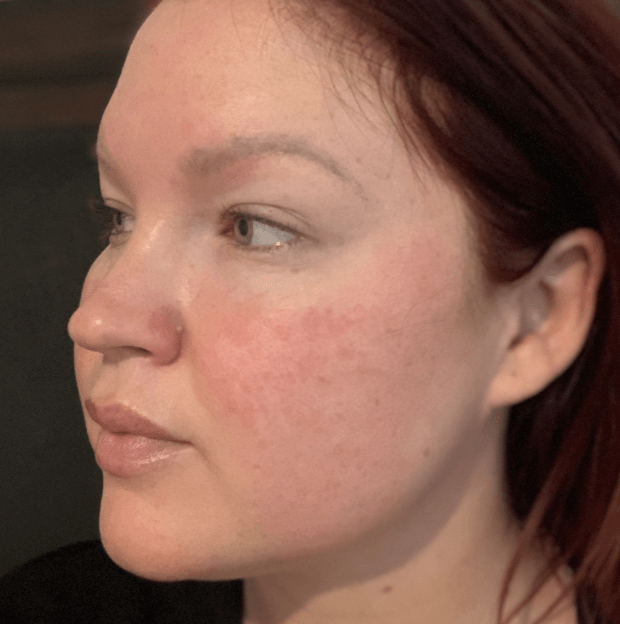
now

during
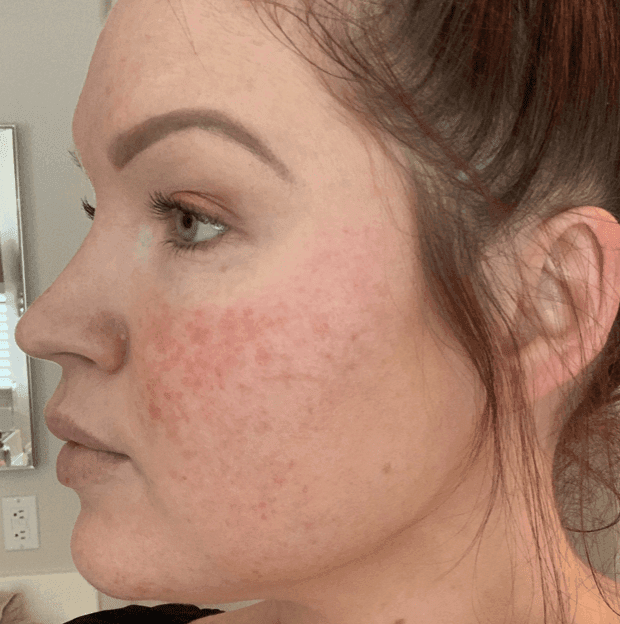
before
“When I turned 28, I developed acne for the first time in my life. I came across a testimonial about Apostrophe. I went to their site and within days I had a treatment plan and prescription sent to me. My face cleared up almost immediately, and 4 months later it’s completely clear and glowing!”
Lauren
concern
acne
rx treatment
Metronidazole Formula
Lauren Kyle
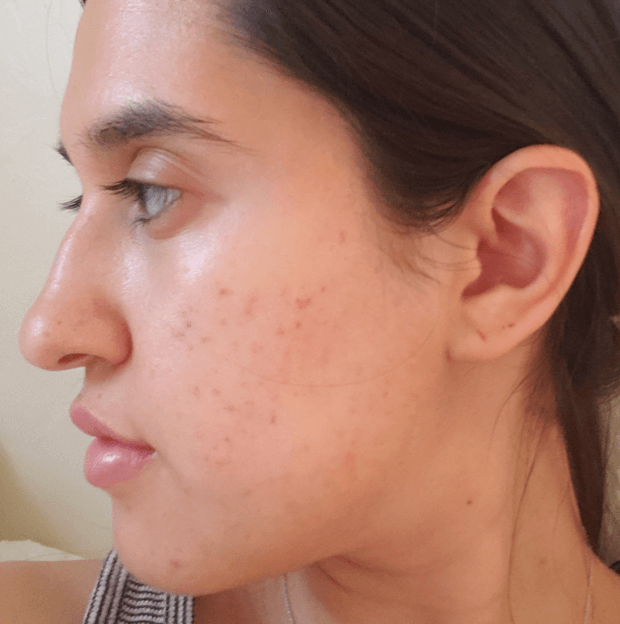
now

during
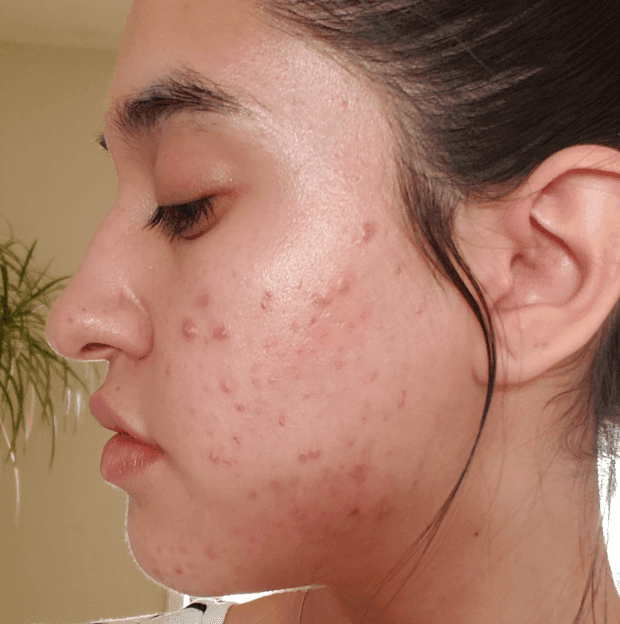
before
“After attempting to manage my adult acne on my own, I decided to try Apostrophe. 8 months into my treatment plan, I never had more flawless skin in my life. No more painful acne or horrific flare ups. I finally feel beautiful make up free!”
Celeste
concern
acne
rx treatment
Clindamycin Formula
Spironolactone
Maggie Kober
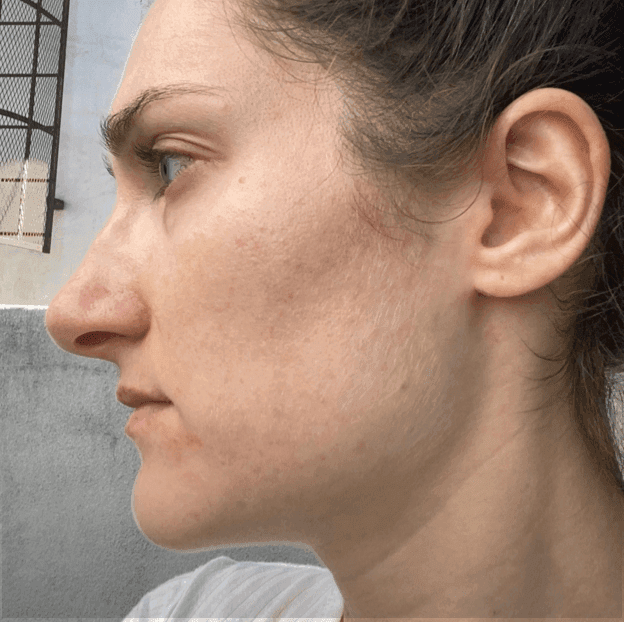
now

during
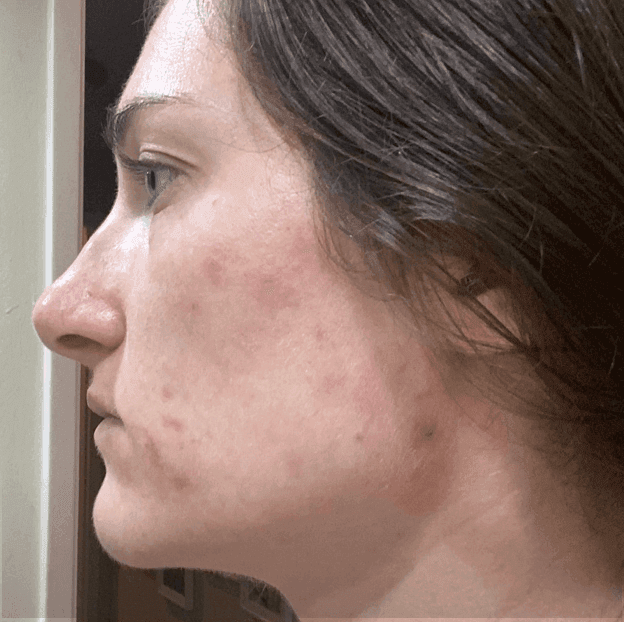
before
“I was able to see a doctor immediately and was given prescriptions right away, a few days later they arrived in the mail and a few months later my skin has truly never been better. I’m so thankful and grateful to them!”
Charlotte
concern
acne
rx treatment
Tretinoin Formula
Spironolactone
Tina Chen
Progress images shared by customer. Individual results will vary.
Get Confidence Delivered
How it works
Share your skin goals in your virtual consultation.
Your provider will create a custom treatment plan for your skin.
Get your treatment delivered directly to your door.
Access expert medical care online, always.
Expert dermatology team
Online derm visit, acne assessment, ongoing follow-up appointments and access via messaging.
Expert pharmacists and technicians
Every formula created is meticulously measured, mixed, and tested for potency and stability.
Science-forward education
Our blog, Slather, fights skincare fiction with a potent dose of experts, evidence, and education.

Your treatment plan
Effective acne treatments.
Topical medications
Apostrophe proprietary topical formula targets the root cause of acne - clogged pores.
Oral medications
Oral treatments quickly reduce inflammation to kickstart rapid improvement.



“Acne has many different causes so medications work best in combination to fight acne from all angles. Topical treatments best target the root cause of acne, the clogged pore, while oral medications can quickly reduce inflammation to kickstart rapid improvement.”
Anne Allen, md
Topical medication
Customized power-packed topical treatment.
Apostrophe proprietary topical treatments are blended with science-backed ingredients tailored to your skin concerns. These treatments can help to:
Treat acne and rosacea
Unclog pores
Reduce acne-causing bacteria
Target hyperpigmentation

Starting at
$25
per month

Oral medication
Your clear skin secret weapon.
Kickstart your acne treatment with oral medications. Think of them as your topical treatment's partner in crime. Oral medications can help:
Target hormonal acne
Eliminate acne-causing bacteria
Calm inflammation
Get acne under control quickly

Starting at
$16
per month

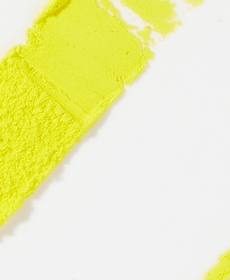
Vitamin A derivative used to keep acne under control and improve skin tone and texture.
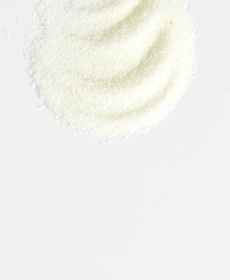
A potent topical antibiotic with anti-inflammatory effects
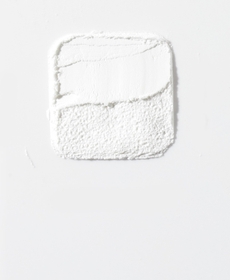
A powerful topical antibiotic that helps to mitigate inflammation
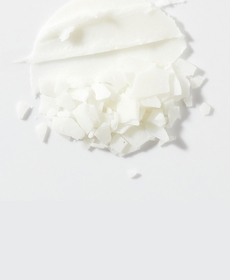
A well-tolerated treatment that effectively treats acne and rosacea
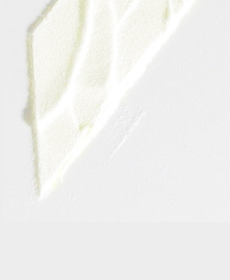
The most potent retinoid available to effectively combat acne
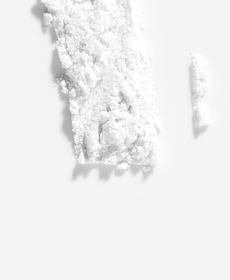
A topical that targets hyperpigmentation at a cellular level for the highest efficacy
Skin resource center
Get your questions answered from an expert dermatology team.
FAQs
What acne medications can I get through Apostrophe?
Apostrophe offers access to a variety of topical and oral medications for the treatment of acne. Once your dermatologist reviews your information, they will prescribe medications they believe will be most effective for your skin. The most commonly prescribed medications are the following:
- Tretinoin Formula (tretinoin 0.018% to 0.1% and niacinamide 4%)
- Metronidazole Formula (metronidazole 1% and niacinamide 4%)
- Benzoyl Peroxide Formula (benzoyl peroxide 3.1%)
- Tretinoin + Clindamycin Formula (tretinoin 0.025% to 0.1% and clindamycin 1% and niacinamide 4%)
- Azelaic Acid Formula (azelaic acid 15% and niacinamide 4%)
- Clindamycin Formula (clindamycin 1% and niacinamide 4%)
- Doxycycline (doxycycline 20mg to 100mg oral pills)
- Minocycline (minocycline 50mg to 100mg oral capsules)
- Sulfamethoxazole-Trimethoprim (sulfamethoxazole-trimethoprim 800 mg-160 mg oral tablets - generic form of bactrim)
- Spironolactone (spironolactone 25mg to 100mg oral tablets)
- Ampicillin (ampicillin 500mg oral capsules)
- Cephalexin (cephalexin 250mg to 500mg oral capsules)
What are the side effects of acne medications?
If your medication’s side effects are too irritating or intolerable for continued use, please discontinue use and contact your dermatology provider through your Patient Account. Your provider will work with you to create a new treatment plan. If you are experiencing a severe reaction to your medication, dial 911 and seek medical attention immediately.
Here is a list of the most common side effects associated with the common medications that are prescribed through Apostrophe.
Tretinoin Formula (tretinoin 0.025% to 0.1% and niacinamide)
The most common side effects of tretinoin are redness and peeling. This medication may make you more sensitive to the sun. Women who are pregnant or who may become pregnant should not handle this medication. A very serious allergic reaction to this drug is unlikely, but seek immediate medical attention if it occurs. Symptoms of a serious allergic reaction may include: rash, itching/swelling (especially of the face/tongue/throat), severe dizziness, trouble breathing.
Metronidazole Formula (metronidazole 1% and 4% niacinamide)
Side effects of metronidazole include: redness, dryness, stinging, and burning at the application site. Headache and nausea may also occur. Rarely, metronidazole can cause an allergic reaction. Symptoms of an allergic reaction include rash, itching/swelling (especially of face/lips/tongue/throat), dizziness, and trouble breathing.
Benzoyl Peroxide Formula (benzoyl peroxide 3.1%)
Common side effects of benzoyl peroxide include redness, irritation and peeling. Benzoyl peroxide can also cause bleaching of clothing/linens but not the skin. Rarely, benzoyl peroxide can cause an allergic reaction. Symptoms of an allergic reaction may include: rash, itching/swelling (especially of face/lips/tongue/throat), feeling light-headed, and difficulty breathing. Women who are pregnant should not use this medication.
Tretinoin + Clindamycin Formula (tretinoin 0.025% to 0.1% and clindamycin 1% and niacinamide 4%)
The most common side effects of this medication are redness, peeling, dryness, and irritation at application site. This medication may make you more sensitive to the sun. Rare side effects may include abdominal pain and diarrhea that is watery or bloody. Rarely, this medication can cause an allergic reaction. Symptoms of an allergic reaction may include: rash, itching/swelling (especially of face/lips/tongue/throat), feeling light-headed, and difficulty breathing. Women who are pregnant should not use this medication.
Clindamycin + Benzoyl Peroxide Formula (clindamycin 1% and benzoyl peroxide 3% and niacinamide 4%)
Common side effects of clindamycin and benzoyl peroxide are dryness, redness, stinging, and peeling. Rare side effects may include abdominal pain and diarrhea that is watery or bloody. Rarely, this medication can cause an allergic reaction. Symptoms of an allergic reaction may include: rash, itching/swelling (especially of face/lips/tongue/throat), feeling light-headed, and difficulty breathing.
Clindamycin Formula (clindamycin 1% and niacinamide 4%)
Side effects of clindamycin include redness, dryness, stinging, irritation or oiliness, and peeling. Rare side effects include abdominal pain and diarrhea that is watery or bloody.Symptoms of an allergic reaction may include: rash, itching/swelling (especially of face/lips/tongue/throat), feeling light-headed, and difficulty breathing.
Doxycycline (doxycycline 20mg to 100mg oral pills)
The most common side effects of doxycycline are nausea, vomiting, diarrhea, and loss of appetite. This medication will make you more sensitive to the sun. Doxycycline can become lodged in the esophagus if not taken with sufficient water where it can cause esophagitis and ulceration. Allergic reaction to this medication is rare. Symptoms of an allergic reaction include: rash, itching/swelling (especially of face/tongue/throat), dizziness and trouble breathing. Women who are pregnant should not use this medication.
Minocycline (minocycline 50mg to 100mg oral capsules)
Common side effects of minocycline include: upset stomach, nausea, vomiting, diarrhea, dizziness, lightheadedness, and drowsiness. This medication may make you more sensitive to the sun. Allergic reaction to this medication is rare. Symptoms of an allergic reaction include: rash, itching/swelling (especially of face/tongue/throat), dizziness and trouble breathing. Women who are pregnant should not use this medication.
Sulfamethoxazole-Trimethoprim (sulfamethoxazole-trimethoprim 800 mg-160 mg oral tablets - generic form of bactrim)
Common side effects include: nausea, vomiting, loss of appetite, dizziness, tiredness, insomnia, painful/swollen tongue. Serious side effects may include: severe skin rash, bruising, itching, sore throat, jaundice. Women who are pregnant should not use this medication. If you have a sulfa allergy you should not use this medication.
Spironolactone (spironolactone 50mg to 100mg oral tablets)
Common side effects of spironolactone include: headache, dizziness, rash, nausea, vomiting, stomach pain, menstrual irregularities, breast tenderness. Serious side effects may include: irregular heart rate, little/no urination, muscle pain/weakness. Allergic reaction to this medication is rare. Symptoms of an allergic reaction include: rash, itching/swelling (especially of face/tongue/throat), dizziness and trouble breathing. Spironolactone can cause severe birth defects. This medication should not be used by women who are pregnant, may become pregnant, or are at a high risk of pregnancy.
Ampicillin (ampicillin 500mg oral capsules)
Common side effects include: diarrhea, stomach upset, nausea, and vomiting. Symptoms of an allergic reaction include: hives, rash, itching, fever, shortness of breath, and anaphylaxis. Women who are pregnant should not use this medication.
Cephalexin (cephalexin 250mg to 500mg oral capsules)
Side effects include: diarrhea, stomach upset, nausea, and vomiting. Allergic reaction to this medication is rare. Symptoms of an allergic reaction include: rash, itching/swelling (especially of face/tongue/throat), dizziness and trouble breathing. Women who are pregnant should not use this medication.
What ingredients are in Apostrophe topical treatments
All of the ingredients in Apostrophe topical treatments are vegan, cruelty-free and fragrance-free. If you have a question about a particular formula, please reach out to the Care Team for a full ingredient list.
How to get rid of dark marks and acne scars?
Dark marks left by acne can be disheartening since the skin does not look clear. Luckily, this post-inflammatory hyperpigmentation will resolve on its own. Red spots left by acne can take about 6 months to fade, while dark spots can take up to a year. Once this discoloration does fade (and it will!), your skin will look more even. Continued acne treatment is important to keep skin clear and prevent new dark spots from forming.
Daily sun protection is very important to help discoloration fade more quickly. You should use a sunscreen with SPF 30 or higher every morning (we offer our own derm-appoved sunscreen, 'Screen) and wide-brimmed hats whenever outdoors. Regular use of tretinoin will help hyperpigmentation fade more quickly by increasing cell turnover. Other treatments such as azelaic acid and hydroquinone can also be helpful. If you think you would benefit from one of these other prescription medications, please submit a follow-up visit with your dermatology provider.
Scars are permanent depressions or pits in the skin. Tretinoin is the best topical medication for treating mild acne scarring as it can build up collagen after at least 6 months of use. Tretinoin can help improve the appearance of milder scars but is unlikely to get rid of deep acne scarring. You may consider lasers or chemical peels, which would require an in person dermatologist consultation.
How are Apostrophe topical medications different from generics?
We believe Apostrophe medications are better than their generic counterparts for a few reasons.
Niacinamide is added to many of our formulations because of its versatility and proven efficacy against common skin concerns such as inflammation, skin discoloration, and sun-damage.
In contrast to generic medicines, special attention was also paid to the vehicle in which the medications are delivered, since this plays a significant role in a medicine’s overall efficacy. Apostrophe medications are delivered in moisturizing creams or lotions that are cosmetically elegant and serve to minimize skin irritation. Importantly, certain inactive ingredients were deliberately excluded. Apostrophe medications avoid fragrances, alcohol, dyes, unnecessary plant extracts, and certain allergenic preservatives. When generic medicines are prescribed, the exact inactive ingredients are unknown by the prescriber and can be variable.
At Apostrophe, all active and inactive ingredients have been carefully considered, which is why we believe they are better than their generic counterparts.
How long does it take to see results?
Acne treatment truly is a skin journey. Acne treatments take time to work. While minimal improvement may be noted in the first 2 months of treatment, results really start to kick in during the third month of treatment and beyond. While those with milder acne may experience rapid improvement, moderate-to-severe acne typically takes about 6-9 months (or longer) to clear. There is a delicate balance between using strong medications that are more effective and avoiding side effects. The skin often needs time to adjust to treatment in a stepwise fashion.
Our acne medications truly work best in combination. Topical medications are the cornerstone of acne treatment. If your dermatology provider has recommended a topical medication which you haven’t started, you will likely experience suboptimal improvement. If you can’t afford your entire treatment plan, you can message your doctor asking for the priority of the medications prescribed.
We encourage you to keep up with your treatment plan and be as consistent as possible. If you don’t see any improvement after two months, you can submit a follow-up visit with your online dermatologist at any time. As a reminder, any virtual appointment costs are applied to future prescription orders.
Can I use my other skin care products (such as acne washes, masks, serums, toners) with my treatment plan?
Unless a product type is specifically recommended by your provider in your treatment plan, you should avoid using it since it may cause unnecessary irritation. Your prescription medications are much more important and effective. Once you are tolerating your prescription medications easily and your breakouts are under control, you can slowly add other skincare products back into your routine if you like.
CONFIDENCE STARTS HERE
Treat acne with personalized care from home
Free shipping to your door
Affordable prescriptions
Customized treatment from a derm team

